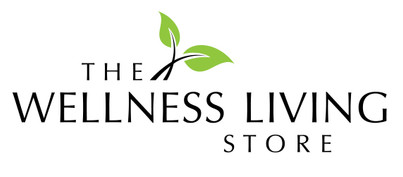How Early Detection Can Save Your Life
Posted by Dr. Mao on Sep 19th 2018

No one wants to
actively think about becoming sick, but being aware of your state of health is
an important part of diagnosing a condition before it becomes a full-fledged
illness. Be in the know because the life you save may be your own!
Start with Your Genes
The deadliest diseases in the industrialized world - cancer, heart disease, stroke, and diabetes - are often genetically inherited. To prevent the expression of these susceptible genes, it is crucial to know your family's medical history.
Become familiar with your family’s health; begin with your parents and grandparents on both sides and then your first cousins. For those who have passed on, learn the cause of death and length of life. Remember, early detection and treatment of disease is the main reason the human life span has increased so dramatically in the last 50 years.
Cancer Breeds in Repression and Stress
Nowhere is stress more directly linked to the development of a disease than in cancer. Patients with cancer are more likely than the general population to have suffered severe personal loss at an early age or to have experienced chronic depression with strong, persistent feelings of helplessness and hopelessness. People who have experienced prolonged stress and those with type C personalities – characterized by a strong tendency to deny and repress their own feelings – are much more prone to developing cancers. Many more recent studies have confirmed the effect of emotional stress on the body. Neuroendocrinology is one of the new fields to emerge from these studies on the connections between the mind and emotions on the autonomic, immune, and endocrine systems.
Take Control of Your Health
If you depend solely on doctors to keep you well, you will surely be disappointed. It is incredibly important that you take an active interest in your own level of health, taking steps to improve and maintain it. You are in control of the unhealthy behavior that leads to imbalance and disease, and you alone can accept responsibility for your disease so that you can change it. When you take responsibility for yourself, you earn the power to change from illness to wellness, sadness to happiness, and conflict to peace.
Eat Well To Support Your Health
Essential fatty acids are like fat vitamins, if you will, that are used in making cell membranes. They are also important in the body’s ability to reduce inflammation and prevent the many degenerative diseases associated with it. Studies show that women with a high intake of essential fatty acids (EFA) are at much lower risk of developing breast cancer. Dietary sources of EFAs are flaxseed, borage, walnut, and hemp seed oils. You can consume these oils on salads and in smoothies, or simply take a tablespoon daily as a supplement. Of course, make sure you’re getting EFAs from cold-compressed, organic oil.
Take a look at the way you are preparing your food. Are you killing the nutrients in your food? Many important nutrients are cooked away in high heat. Boiling can destroy half of the vitamins found in vegetables. Deep-frying produces the worst kind of fat, trans fat, which can clog your arteries and increase your risk of cancer.
Eating barbecued or grilled meat that is burnt or blackened on a regular basis is another way to make your cancer risk soar. Treat your food gently! You can preserve the nutritional value of your food when you lightly steam, quickly stir-fry, or simply broil.
Awareness Exercise for Early Warning
When you become aware of your body's natural states, you can detect subtle
changes in your state of health. Try this simple yet powerful awareness
meditation that can be done anywhere, anytime!
Close your eyes and pay attention to your breath for one minute. Is your breath
slow or fast, long or short, shallow or deep? As you breathe, can you feel your
lungs and abdomen expanding and contracting? Now, for one minute, expand
this awareness to your whole body.
Do you feel discomfort or pain anywhere? Can you feel your digestion working? Is there movement in your abdomen? How is your posture, whether sitting or lying? Can you feel the energy and blood flowing throughout your body? For this last minute, extend your awareness to your surroundings.
Experience the lighting conditions, temperature, varied sounds, smells, and nearby people. What is your reaction to these experiences? You can record these observations in a notebook and review regularly for any subtle changes that may require attention.
I hope this article helps you stay in good health for years to come! May you Live Long, Live Strong, and Live Happy!

